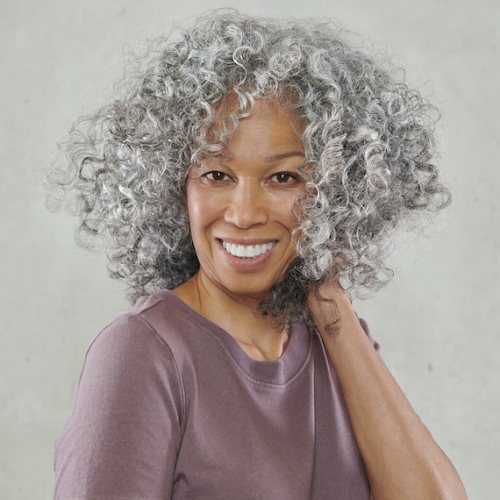Gray locks seem to be hot right about now. But when the gray is tinged with yellow, hair tends to look drab, dull, and lifeless. There are a lot of potential contributors to gray hair discoloration, most of them beyond your control, but it is almost always manageable.
Several factors can cause gray hair to turn yellow. Gray hair, which contains little or no pigment, sometimes gets yellow because it picks up pigments from the environment, like air pollution (smog) or car exhaust fumes.
Too much sun or overly chlorinated water that contains a high amount of iron might tinge the tresses.
One of the most common and preventable culprits is yellowing caused by hair products that are being used. If your shampoo or conditioner, for example, has a yellow or gold tint to it, then it can stain and build up on your hair, causing it to look yellow.
Over-consuming vegetables and fruits that are high in beta-carotene (carrots, sweet potatoes, spinach, kale, cantaloupe, etc.) can not only affect your skin, but can also turn your grays yellow.
Watch out for your styling tools! Curling irons, blow dryers, and flat irons can all cause gray hair to yellow.
Certain medications can cause your hair to turn yellow. You’ll need to check with your physician to determine if your scalp medication or topical creams are the cause.
Yellowing hair can also indicate certain medical conditions, such as inflammatory diseases that lead to skin rash and muscle weakness. If your hair is turning yellow, it’s a good idea to schedule a checkup to rule out any concerns for disease.
Once you find out why your gray is tinged with yellow, get rid of the brassiness. These homemade solutions for removing yellow from gray hair are proven to be effective.
Vinegar Rinse
- Mix one tablespoon of apple cider vinegar with one gallon of water.
- After shampooing, rinse your hair using the vinegar and apple cider mixture.
- Work it through your hair and rinse well with clean water.
- Condition with a white conditioner.
- Repeat the vinegar rinse once a week.
Hydrogen Peroxide
- Mix equal parts of 30-volume hydrogen peroxide (three percent and NOT more) and a white conditioner.
- Apply this mixture to your hair and comb it through.
- Place a plastic cap over your hair and let your hair process for about 20 minutes.
- Rinse well and then shampoo and condition your hair as usual.
- This process should NOT be repeated more than once a month.
